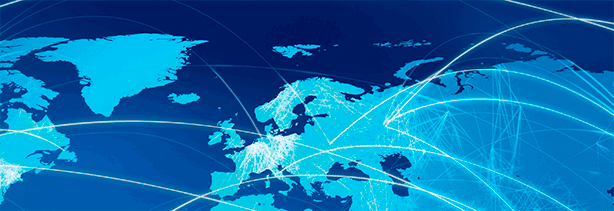As a relatively small and strong export country, the Netherlands has been benefiting from the open economy and globalization since the Golden Age. ‘Internationalization’ certainly took off in a major fashion after the Second World War, as companies realized that foreign investments were essential for continued growth. But the internationalization of companies, of laws and regulation and a highly educated labor force is also essential today, now the focus has switched to the digital economy, both for growth and to stay ahead of the game on all fronts.
At the same time, we are faced with the worldwide growth of populism, with nationalist sentiments, with new obstacles, either in the form of protectionist rules or even physical walls aimed at protecting national interests or identity. This seems to indicate a reversal of this internationalization. Yet this is a logical reflex of people living in a global environment who, for various reasons, have become skeptical about their own influence and employment opportunities or who are searching for their national identity.
The paradox of internationalization is that it also reinforces the need to add substance and meaning to national identity. Take the Brexit vote: one of the main reasons for the Brexit vote was migration; by definition a consequence of internationalization. Whether choosing independence offers a solution to this? Only time will tell, but global problems such over-population, disease, famine, the environment, immigration, war and peace care nothing for national borders. We can only solve global problems by acting together. And that makes them international by definition.
KPMG could also do even better in terms of ‘thinking and acting globally’, also taking into account our hundred-year-old Dutch roots. After all, the ‘K’ in KPMG stands for Piet Klijnveld, who started his Dutch accountancy firm back in 1917. Within KPMG, as an international cooperative, we also sometimes tend to look at what works and what does not work in each country. So even KPMG could position itself as more of a ‘world citizen’ through more international cooperation and information sharing. Obviously in the interests of both our clients and our employees and the role we play in society as a whole. This would be fully in line with our digital economy and new developments in chain automation, something we are all working very hard on right now.
Of course there are also downsides to internationalization. Take the relocation of operations to countries with low labor and transport costs and lenient environmental and tax policies. This incites counter forces or even protectionism, as we are seeing in various places (Trumpism). This is exactly when it makes sense to look at regional and national influences, at social and climate-related aspects and at the economic impact, from both a shareholder and a stakeholder perspective. Our True-Value methodology helps us to define and report on the impact of financial, social and environmental aspects.
Despite all the challenges we face, I mainly count the blessings of internationalization. I am convinced the cooperation between people, across professional and national boundaries, is and will remain of paramount importance. As KPMG, we want to contribute to this effort with this Compact quarterly (as we have already done for more than 44 years).

Albert Röell, Chairman of the Board of Management KPMG Netherlands



